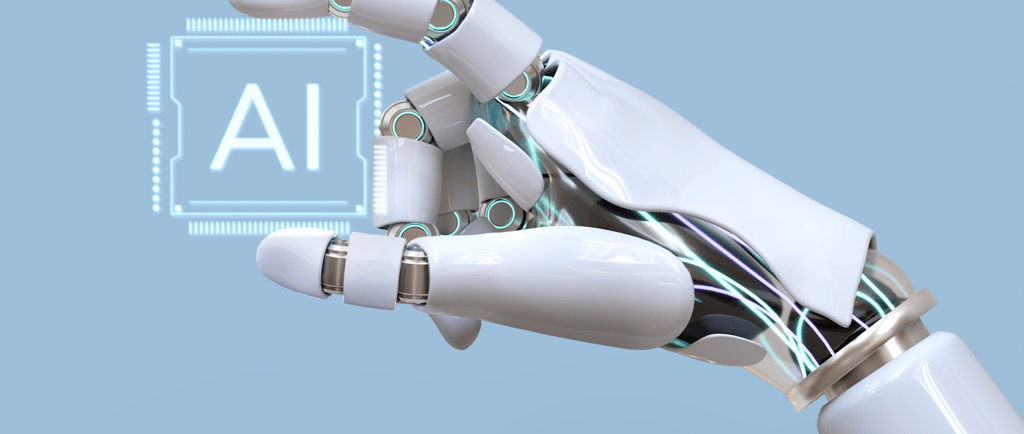The AI Revolution: Why talking to your people now matters more than ever


AI is coming. And faster than many businesses expect. The question is: are your people ready for it?
AI is often described as the next Industrial Revolution, an innovation so transformative that it will fundamentally reshape how we work and live. And yet, while AI is already here and advancing at breakneck speed, much of the conversation remains theoretical. There are endless debates about its ethics, operational impact, and future potential, but surprisingly, there is little focus on effective communication about AI and how organisations should talk to the people who will be most affected by it.
One of the biggest mistakes in change communication - one we see time and time again - is the tendency to wait until everything is neatly finalised before saying anything at all. The project team spends months crafting a strategy, the leadership team signs off on it, and then, finally, a big announcement from the CEO. After that, communication is typically a top-down cascade, often with a perfunctory consultation process.
The problem? People aren’t blind to change happening around them. And when they don’t get information through their official internal communication channels, they fill in the gaps themselves. Rumours spread. Misinformation takes root. By the time leadership is ready to talk about the transformation, they may find themselves battling resistance, confusion, and outright fear rather than constructive engagement.
When it comes to AI adoption, this risk is even greater. This isn’t just an internal shift or sector-specific change; a global conversation is happening in real time. While early adopters, researchers, and tech evangelists debate the pros and cons, the broader public discourse is filled with uncertainty, concern, and (let’s be honest) a steady stream of doomsday headlines.
And the fear isn’t baseless. The Future of Jobs Report 2025 found that half of employers plan to restructure in response to AI, with 40% expecting to reduce their workforce where automation can take over. Meanwhile, a 2023 Gallup poll reported that one in five U.S. workers fear AI will make their jobs obsolete.
Whether these fears are overblown for your specific organisation or not, they are real. Businesses, particularly Small and Medium-sized businesses (SMBs), where workforce impact might feel more direct, that ignore them risk undermining trust and successful innovation adoption.
The good news? It’s not too late to shape the narrative with a proactive AI communication. And you don’t need all the answers to start.
What can organisations do now?
Start the Conversation Now: Your organisation may still be in the early stages of AI adoption, but your people are likely already using AI tools personally or exploring them for work. They expect leadership to have an informed perspective. Begin engaging in open discussions about AI’s potential role and your approach to AI communication.
Create and Share Your AI Manifesto: It doesn’t have to be complex, especially for an SMB. A simple statement outlining your company’s commitment to responsible AI adoption can be powerful. Cover areas like privacy, ethics, and how AI will ideally enhance, not replace, human roles. A clear stance helps manage perceptions. This is key for transparent technology adoption communication.
Form an AI Working Group: Bring together employees from different areas, both enthusiasts and sceptics (even if it's just an informal group in a smaller company). Task them with exploring practical AI applications for your organisation. This fosters employee engagement, ensures diverse perspectives, and helps pre-empt concerns.
Make Employees Part of the Journey: Be transparent about your AI goals. Whether it’s boosting efficiency, reducing admin tasks, or improving customer experience, involve your teams in the conversation. Ask them where AI could add the most value and listen to their concerns. This participatory approach is vital for smooth change management later.
Invest in Upskilling and AI Literacy: Understanding AI shouldn’t be limited to specialists. Provide accessible training or resources for employees at all levels (including leadership!). The more people understand AI, the more they can focus on opportunities. Communicating your commitment to upskilling can significantly reduce anxiety.
The AI revolution is here. Those who wait until they have all the answers before communicating risk losing control of the narrative. By engaging employees early, addressing fears proactively, and fostering an informed, open dialogue, businesses can ensure that AI adoption feels like an opportunity rather than a threat.
Effective communication is crucial to ensuring your people and your organisation are ready.
